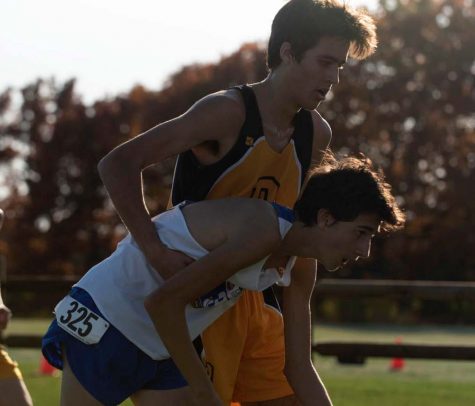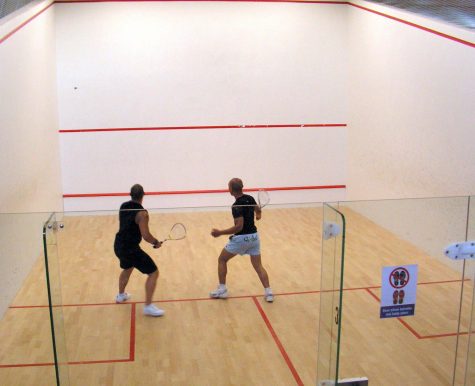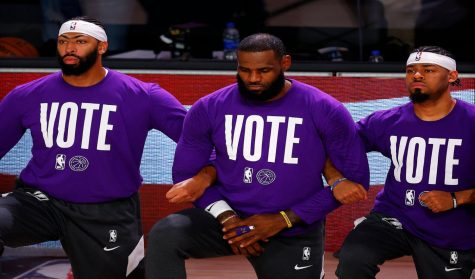Freshmen Balance School and Varsity Level Sports
May 9, 2018
Athletics at John Burroughs School are a big deal. It is one of the three pillars of a Burroughs education, “Academics, Arts, and Athletics.” Everyone who takes their sports seriously understands the importance, the pressure, and the pinnacle of getting to the varsity level. It is at this level where students’ goals change from completing a mandatory sports requirement to “I am here to improve and win.”
It’s this drive of competition, this desire to win, and this commitment level of varsity athletes that set these athletes apart from the student who enjoys sports and sees them as merely a way to meet friends and stay in shape. With the promise of varsity sports comes the competition and drive of more and more younger faces who have dedicated their elementary and middle school years to training and select sports. These young athletes dream of one day making varsity teams, and many do, but some rise up to the occasion on the first opportunity they have: as freshman.
Being on a varsity team as a freshman has many positive and negative aspects, but it seems that the majority of freshman consider it positive.
Riley King ‘21, captures this balance perfectly. She has been playing lacrosse since elementary school, and she made the girls’ varsity lacrosse team this spring. She says one of “the best parts of being on the [varsity] team is getting to meet and become friends with the older kids. It’s exciting to finally be able to play at this competitive level but sometimes it can be challenging because a lot is expected of someone at the varsity level when they’re just a freshman.”
A specific benefit of being on a varsity team as a freshman is being surrounded by older athletes whose potential and talent motivate and inspire their younger peers. Kate Smith, ‘21 has been playing field hockey for six years and she made the varsity girls team this past fall. She says, “just playing with people who are older and have a higher skill level than I was off-putting at first, but once I got used to it, it really helped me build my skills.”
Playing with older students from all grades can be a positive and a negative. While many feel the exposure to older students has helped them assimilate into the JBS community easier, some have found it hard to fit in. Being the only freshman on the girls Varsity Field Hockey team, Smith says that, “I didn’t really know anyone very well, so at times, I felt excluded from conversations or discussions and that was definitely the worst part [about being on a varsity sport].”
One aspect that can be hard about being on a varsity team as a freshman is confidence. The sudden change from playing on a middle school level, where everyone is about the same age, height, strength, and size, to being the youngest on a team and playing against kids that are much older and stronger can be hard. Beckett Tasker, a current freshman who played on varsity ice hockey and varsity lacrosse this year says, “I feel that the worst part of being on a varsity sport as a freshman is sometimes losing your confidence. You’re out on the ice or field going up against juniors and seniors who look like grown men. Sometimes you’re just too worried to mess up, or you don’t think you can make the move, but as I’ve learned from Jimmy Johnson, you got to go out there and think, ‘I’m better than you, I don’t care how good [or old] you are, I’m better and I’m going to go score.’”
Additionally, some of the components of being a freshman on a varsity team is actual play time. While many freshmen are placed on varsity teams because they are in fact better than other older players, some are placed on varsity to be groomed for future years. Peter Tasker, Athletic Director, believes that when freshmen are given the choice of being on varsity and not playing much or being a leader on a JV team, “9 times out of 10 the student-athlete will choose the higher level, but emotionally, when it comes time, and they are halfway through the season and they aren’t getting play time, it’s easy to forget the deal.”
He believes that with lots of communication between the athletes, coaches, and parents, they can work together to find the best place for a freshman so that they can continue to grow as an athlete and as a person.
Overall, the varsity team experience can be memorable and meaningful, but it’s important for younger athletes to enter into this dynamic with all the facts, and fully understand the expectations, additional time requirements, and be willing to fully be part of the team whether play time reflects it or not.
Peyton Starks, ‘21, has played basketball for more than a decade, and when she made the varsity basketball team she was worried about the pressure of the higher level. She said, “The worst part about being on a varsity team, especially as a freshman, is feeling like there is a lot that is expected of you” and not knowing if you will be able to live up too it. She followed that up with saying the pressure is worth it because “I got to become friends with upperclassmen and they gave me good advice; plus they drove me to restaurants.”









